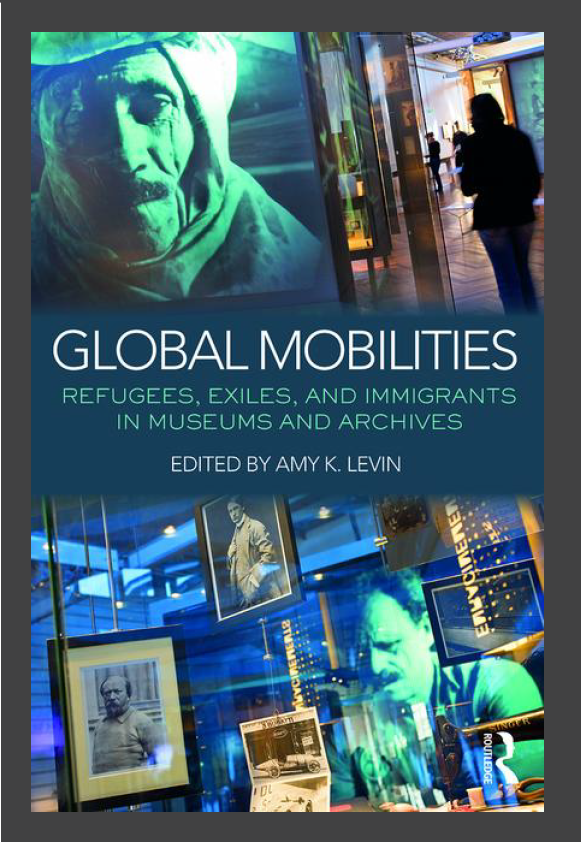
Sarah Bringhurst Familia, Public Relations officer at the Expatriate Archive Centre in The Hague, writes about her co-authorship to a chapter in the recently published book, Global Mobilities: Refugees, Exiles and Immigrants in Museums and Archives, edited by Amy K. Levin, Professor Emeritus at Northern Illinois University
A year and a half ago, when I began working for the Expatriate Archive Centre (EAC) in The Hague, I inherited a half-written article on the history of the organisation. It was intended to be a chapter in a book written by an American scholar, and it fell to me to pull together portions written by different authors, hunt through the archive for source citations and supporting material, and synthesize the whole into a coherent narrative.
During the course of my research, writing, and editing, I grew to feel acquainted with the founders of the archive, and fell progressively more in love with their creation—this place where the lives and stories of expats, especially expat women and their families, were preserved, cherished, and given their place in history.
The roots of the EAC go back to the early 1990’s; a time when expat women were still often expected to unquestioningly fill the role of the ‘trailing spouse’, with everything the moniker implied. At the time, global oil giant Shell was preparing for a celebration commemorating its 100th anniversary. A few ‘Shell wives’, as they were then called, noticed that nowhere in the preparations was there any attention given to the contributions and sacrifices that had been made over the years by spouses (most of them women) and families of the Shell workers deployed around the globe.
To rectify the oversight, these enterprising women formed what they called the ‘Shell Ladies Project,’ and began gathering the stories and experiences of Shell wives like themselves all over the world for publication in a book. The resulting publication, Life on the Move, was so well-received that they soon published a sequel. By this time they had amassed so many interesting documents that they decided the material they had gathered should be preserved not only for themselves and the Shell family, but also for academic researchers and the future. They decided to form an archive, and to open it not only to stories of Shell families, but to expats of all kinds from all over world. Today the EAC holds a diversity of individual, family, and organisational collections comprising primary source material such as letters, diaries, photographs, newsletters, blogs, etc., from expats in over 80 different countries.
When the women of the Shell Ladies Project decided that stories like theirs were worth preserving in an archive, they expanded the boundaries of history, and of archiving. Although perhaps they would not have viewed themselves as feminist, they were creating a space in which the everyday stories of expats abroad, especially women, were considered as valuable for historical preservation and academic research, in a way they had not been valued before.
I was fascinated to learn of their struggles and triumphs in the early years of the EAC, and honoured to have the chance to put them in writing for inclusion in Global Mobilities: Refugees, Exiles and Immigrants in Museums and Archives, a new book edited by Amy K. Levin, Professor Emeritus in Northern Illinois University’s English Department. Levin does research in the areas of Women’s Studies and women’s literature, Museum Studies, Victorian literature, African-American literature.
Global Mobilities looks at the role of museums and archives in the politics of integration and cultural diversity and their efforts to further the inclusion of racial and ethnic minority populations. The chapter on the EAC which I co-authored is Chapter 16: Expanding the Boundaries of History: The Expatriate Archive Centre. Other chapters explore different institutions and their approaches to migration history, as well as contextualising the ideas and providing interesting case studies.
Global Mobilities would be an excellent addition to the library of any scholar, archive, university, or private individual with an interest in migration studies, museums, and how the two have interacted. Please feel free to download the flyer below (which affords you a 20% discount on the book) and pass it on to anyone else who might be interested!
For more about the book, please see: www.xpatarchive.com/wp-content/uploads/2016/10/Global-Mobilities-FLYER.pdf

